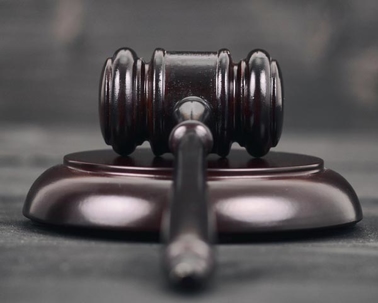Grandparents Visitation Rights in TN
In Tennessee, grandparents have visitation rights under family law. Visitation is allowed if a set schedule is created. If the parents do not allow grandparents to see their grandchild, there is an option to petition the court for a visitation schedule under certain conditions.
Lovelace v. Copley
On September 6, 2013, the Tennessee Supreme Court issued a unanimous ruling in Lovelace v. Copley, relating to the modification of grandparent visitation orders. The court ruled that both parents and grandparents alike who seek to change or end court-ordered grandparent visitation must prove a material change in circumstances and that the change or end of visitation is in the best interests of the child.
A Motion to Terminate All Grandparent Visitation
The case arose from an agreed order which awarded the child's biological paternal grandmother and her husband grandparent visitation rights. When the parties' relationship subsequently degenerated to point that they were no longer able to communicate or cooperate with each other, the grandmother and her husband initiated contempt proceedings against the child's mother and stepfather for violations of the agreed visitation order; they also sought to modify the court order, requesting an increase in the amount of visitation time they have with the child. In response, the child's mother and stepfather then filed a motion to terminate all grandparent visitation.
The trial court found that there had been a material change of circumstances and that it was in the best interest of the child to expand the visitation slightly to "make a smoother transition."
What the Court of Appeals Decided
The Court of Appeals reversed, in part, in a split decision, vacating the trial court's order concerning visitation. The majority ruled that a grandparent seeking a modification of a visitation order needs to prove a material change in circumstances that demonstrate a substantial risk of harm to the child if the requested modification is denied.
The Supreme Court Reversed Based on the Tennessee Constitution
The Supreme Court reversed the Court of Appeals' judgment and reinstated the portion of the trial court's judgment which modified the grandparents' visitation. The Court held that the legal burdens of proof and standards applied in initial grandparent visitation proceedings are different from those applicable to proceedings for modification and termination of grandparent visitation orders. The court reaffirmed prior court precedent holding that parents are presumed to have superior parental rights at the initial grandparent visitation proceedings. To defeat the constitutional preference initially given to parental decisions regarding grandparent visitation, the grandparents must prove that the denial of visitation would result in substantial harm to the child and that visitation from grandparents would be in the child's best interests.
The Supreme Court examined the Tennessee Constitution and found no constitutional provision which would require extending these principles to subsequent proceedings. The Supreme Court's ruling stated: "Having once afforded parents the opportunity to rely upon the protection of the presumption of superior rights to the care, custody, and control of their children in the initial grandparent visitation proceeding, no constitutional principle demands that parents again be afforded a presumption of superior rights in a subsequent grandparent visitation modification proceeding-whether the subsequent modification proceeding is initiated by the parents or by the grandparents."
The Same Legal Standards for Parents and Grandparents Should Apply
Instead, said the Court, the trial court should apply the same legal standards and burdens of proof that are typically applied in parent versus parent cases for modification or termination of visitation, unless there are extraordinary circumstances present.
The Court gave some examples of extraordinary circumstances, such as where the parents were not afforded an opportunity to assert their superior parental rights in the initial grandparent visitation proceedings, or the grandparent visitation order is facially invalid, or the order was the result of fraud or procedural illegality.
Have a Complex Matter Involving Grandparent Visitation Rights? Call (931) 283-2311.
Laws are constantly changing and vary by jurisdiction. Individuals facing matters involving the visitation rights of grandparents' rights are urged to consult with a competent attorney for the protection of their legal rights. At Goble & Yow Attorneys, PLLC our Charleston family law attorneys have more than 30 years of collective legal experience. If you need to assert your grandparent visitation rights or are parents that need to draw the line and exercise your parental rights, contact our firm. We are ready to answer your questions during a consultation. Do not hesitate to reach out today.
Related Reading
Contact Goble & Yow Attorneys, PLLC online or call (931) 283-2311 to schedule a consultation.
Our family lawyers are ready to help you with your grandparent visitation matter.

